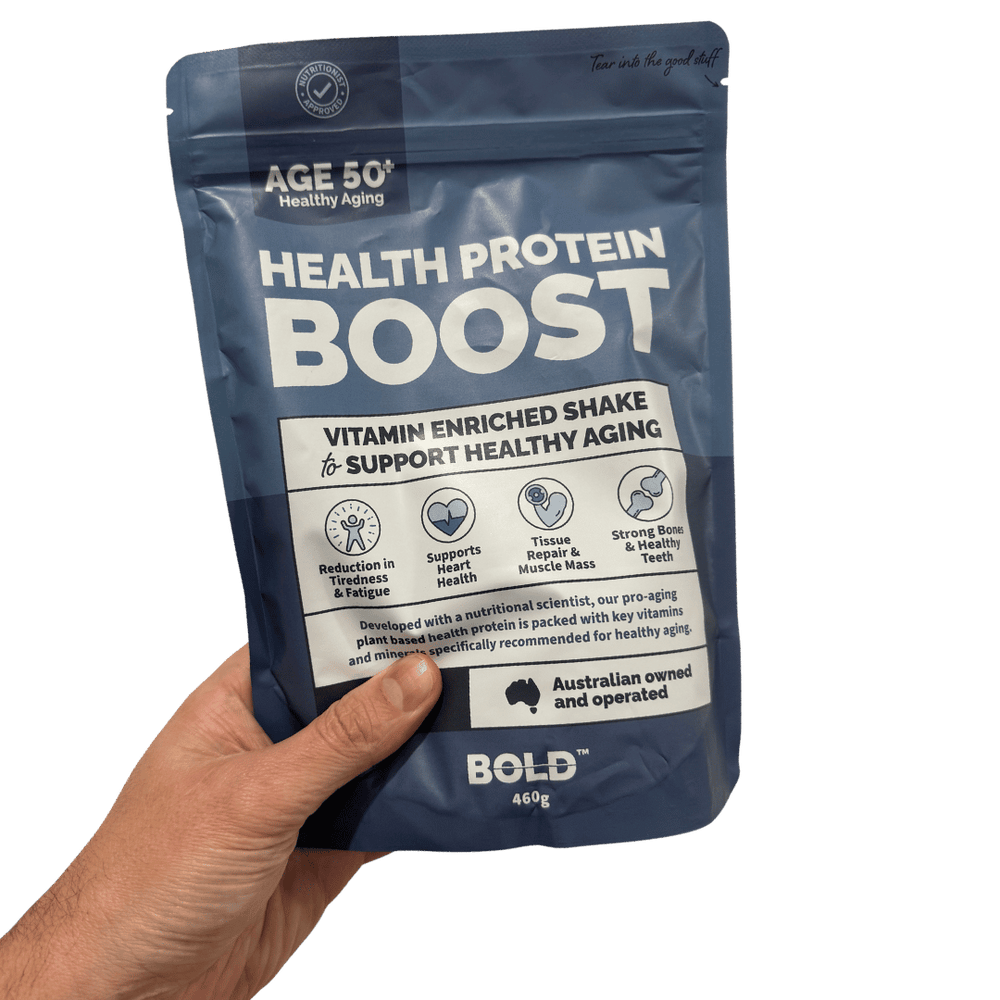The Importance of Vitamin D for Your Health
The Sunshine Vitamin's Secret to Aging Well

Vitamin D, also known as the "sunshine vitamin", plays a crucial role in maintaining good health and well-being as we age. This essential nutrient helps us age better, from boosting the immune system to supporting bone health and reducing inflammation. In this article, we'll explore the numerous benefits of vitamin D for aging well, why it's so important, and how you can make sure you're getting enough of this vital nutrient. So let's bask in the sun's rays and get to know the top 5 benefits of the sunshine vitamin.
1. Supports bone health
Vitamin D is essential for supporting healthy bones. It helps the body absorb calcium, which is a mineral that is vital for strong bones. As we age, the risk of osteoporosis and fractures increases, making adequate vitamin D intake even more important. Studies have shown that vitamin D supplementation can increase bone density, reducing the risk of fractures and falls in older adults. Furthermore, vitamin D has been linked to improved muscle function, which can help prevent falls and other injuries related to muscle weakness. So, incorporating enough vitamin D into your daily routine can go a long way in maintaining strong bones and reducing the risk of falls and fractures as you age.
2. Boosts the immune system
Vitamin D plays a crucial role in boosting the immune system and protecting against infections and diseases. This essential nutrient helps regulate the immune system, activating T cells and natural killer cells to fight off harmful pathogens. As we age, our immune system naturally weakens, making it even more important to maintain adequate vitamin D levels to help prevent illness and keep the immune system functioning at its best. Research has shown that vitamin D supplementation can help reduce the risk of respiratory infections, flu, and other illnesses, particularly in older adults. So, incorporating enough vitamin D into your daily routine can help keep your immune system strong and healthy as you age.
3. Improves muscle function
Vitamin D is essential for maintaining strong and functional muscles. It helps regulate muscle tone, improving strength and reducing the risk of falls and injuries in older adults. Adequate vitamin D levels have been linked to improved muscle function, including better balance, coordination, and reaction time, which can help prevent falls and related injuries. Additionally, vitamin D plays a role in maintaining bone health, as discussed earlier, and improving muscle function can help support strong bones and reduce the risk of fractures. So, incorporating enough vitamin D into your daily routine can help keep your muscles strong and functioning optimally, reducing the risk of falls and injuries as you age.
4. Supports mental health
Vitamin D is not only important for physical health, but also for mental health. Adequate vitamin D levels have been linked to improved mood, reduced symptoms of depression and anxiety, and a reduced risk of cognitive decline and dementia. Vitamin D helps regulate the production of neurotransmitters, such as serotonin, which play a key role in regulating mood and reducing symptoms of depression and anxiety. Furthermore, vitamin D has been shown to protect against cognitive decline and reduce the risk of developing Alzheimer's disease and other forms of dementia. So, incorporating enough vitamin D into your daily routine can help support mental wellness and reduce the risk of cognitive decline as you age.
5. Reduces inflammation
Vitamin D plays a crucial role in reducing inflammation, a key contributor to many chronic diseases. Inflammation is a natural response of the body to injury or infection, but chronic inflammation can lead to serious health problems, including heart disease, diabetes, and cancer. Vitamin D helps regulate the immune system and reduce inflammation, which can help protect against these and other chronic diseases. Furthermore, vitamin D has been shown to reduce markers of inflammation in the body, such as C-reactive protein (CRP), which is associated with an increased risk of heart disease and other health problems. So, incorporating enough vitamin D into your daily routine can help reduce inflammation, protect against chronic diseases, and promote overall health and wellness as you age.
The Best Ways to get more vitamin D
There are several ways to get more vitamin D:
- Sun exposure: The best source of vitamin D is natural sunlight. Just a few minutes of sun exposure, especially during the middle of the day, can help the body produce enough vitamin D. However, too much sun exposure can be harmful, so it's important to protect your skin from excessive sunburn.
- Diet: Foods that are rich in vitamin D include fatty fish, such as salmon and tuna, as well as egg yolks and mushrooms.
- Fortified foods: Many foods, such as Bold are fortified with vitamin D. Incorporating a product like Bold into your diet can be an effective way to ensure adequate intake, especially during the winter months when sun exposure is limited.
It's important to note that everyone's vitamin D needs are different, so it's a good idea to speak with your doctor to determine the right amount of vitamin D for you. In general, adults should aim to get at least 600-800 IU of vitamin D per day.
Conclusion
In conclusion, vitamin D is a crucial nutrient for aging well. It supports healthy bones, boosts the immune system, improves muscle function, supports mental health, reduces inflammation, and protects against chronic diseases. Incorporating enough vitamin D into your daily routine can help you age better and maintain good health. You can get more vitamin D through sun exposure, diet, supplements, and fortified foods. If you're concerned about your vitamin D levels, speak with your doctor to determine the right amount for you. By getting your daily dose of vitamin D, you can unlock its secret to aging well and enjoy a healthy and active life.
---------------------------------------------------------------------------
Medical Disclaimer
The information provided in this blog post is for general information only, it is not intended as medical advice. For medical advice please consult with a qualified medical professional who is familiar with your individual medical needs.


